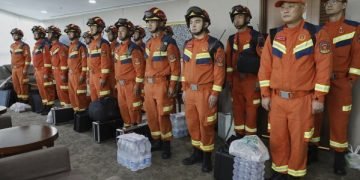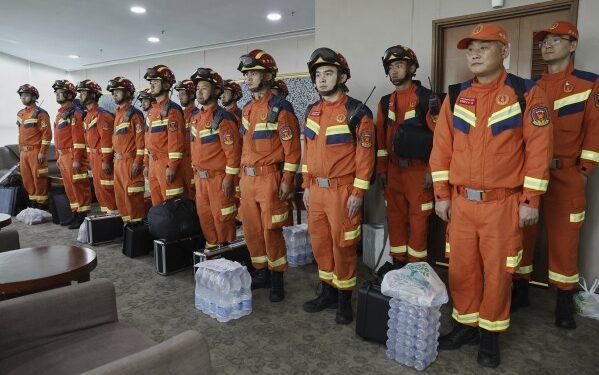By Maria Kalamatas | The Logistic News | Apri2, 2025
In the aftermath of the devastating 7.7-magnitude earthquake that struck Myanmar and parts of Thailand last week, Air Charter Service (ACS) has rapidly mobilized humanitarian support, arranging multiple charter flights to deliver urgent relief supplies into the affected regions.
With the epicenter located less than 20 miles from Mandalay, Myanmar’s second-largest city, the natural disaster has crippled vital infrastructure, forcing the temporary closure of Mandalay International Airport and complicating traditional aid delivery routes.
Adapting to Complex Logistics on the Ground
ACS, which specializes in emergency charter services, confirmed that it has already flown over 70 tonnes of aid to the region—primarily into Yangon and Bangkok—as part of a coordinated global response. With Mandalay Airport inoperable, Yangon is serving as the primary entry point for bulk supplies, which are then redistributed overland or via smaller aircraft to reach remote and devastated areas.
“With Mandalay’s main airport currently unavailable, and many of the local airports in the country unable to accept large aircraft, we have been using Yangon to fly the bulk of the aid in,”
— Ben Dinsdale, Director for Government and Humanitarian Services, ACS
He added that smaller regional airports or road transport are being utilized to overcome last-mile challenges, particularly in areas cut off due to damaged infrastructure.
Global Network in Action
The latest ACS flights include:
-
Two aircraft landing in Yangon over the weekend, delivering over 40 tonnes of aid.
-
A third aircraft arriving in Bangkok on Monday, carrying nearly 30 tonnes of medical supplies sourced from the Middle East.
-
Several additional flights are scheduled in the coming days, coordinated through ACS offices worldwide in close collaboration with international aid organizations and government relief efforts.
Dinsdale emphasized ACS’s readiness to continue operating around the clock to meet the evolving logistical demands of the crisis.
“Our thoughts go out to all those impacted by this terrible disaster,” he said. “We will continue to work tirelessly to support the aid agencies leading the relief operation.”
A Devastating Toll
As of publication, the death toll in Myanmar had risen to over 2,700, with thousands more injured or missing. In Thailand, at least 20 deaths have been confirmed, with 70 people reportedly still trapped beneath collapsed buildings. The tremors were also felt across southwest China, amplifying the scale of regional disruption.
The humanitarian crisis has triggered an outpouring of support from governments and NGOs globally. However, access issues, fuel shortages, and limited runway capacity at surviving airports remain pressing concerns for relief logistics coordinators.
A Logistics Lifeline
ACS’s rapid deployment underscores the critical role of air cargo charter services in disaster response—particularly in regions where conventional freight channels are unavailable or overwhelmed.
With a reputation for emergency responsiveness, ACS has previously supported humanitarian missions in Syria, Türkiye, Mozambique, and Ukraine, and is now applying its expertise to one of Southeast Asia’s most severe earthquakes in recent memory.
As rescue operations continue, the focus now shifts to sustaining medical support, food distribution, and shelter for displaced populations—areas where reliable logistics will make the difference between life and death.
Maria Kalamatas is a logistics and humanitarian supply chain correspondent for The Logistic News.






















